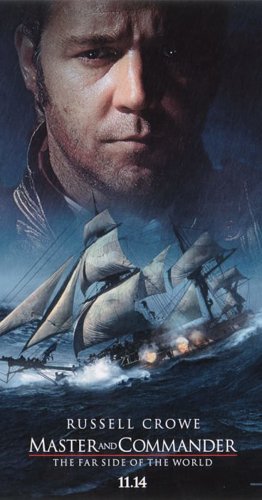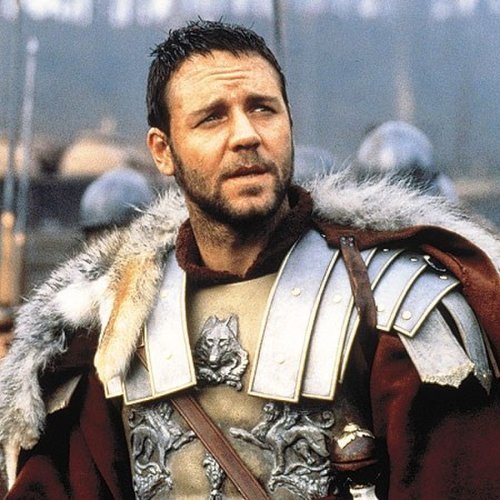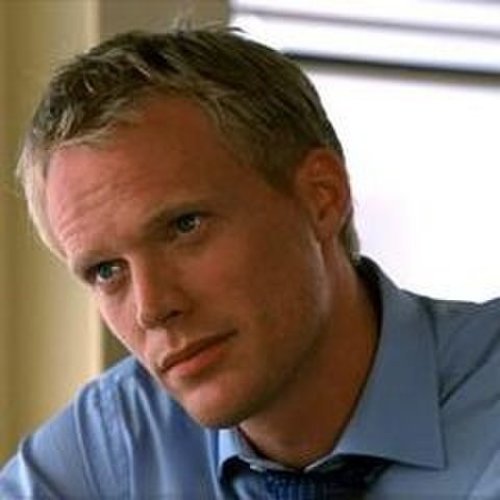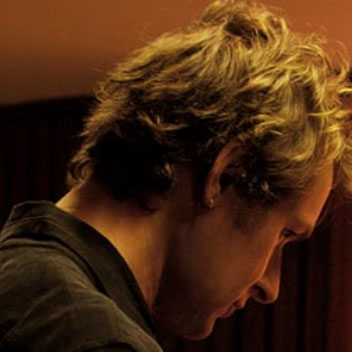| Fecha | Área | Bruto |
|---|---|---|
| 9 May 2004 | USA | USD 93,926,386 |
| 2 May 2004 | USA | USD 93,917,946 |
| 25 April 2004 | USA | USD 93,902,719 |
| 18 April 2004 | USA | USD 93,864,607 |
| 11 April 2004 | USA | USD 93,802,409 |
| 4 April 2004 | USA | USD 93,705,590 |
| 28 March 2004 | USA | USD 93,557,809 |
| 21 March 2004 | USA | USD 93,374,871 |
| 14 March 2004 | USA | USD 93,143,778 |
| 7 March 2004 | USA | USD 92,896,473 |
| 29 February 2004 | USA | USD 92,569,819 |
| 22 February 2004 | USA | USD 92,076,135 |
| 16 February 2004 | USA | USD 91,255,360 |
| 8 February 2004 | USA | USD 89,605,191 |
| 1 February 2004 | USA | USD 87,568,647 |
| 25 January 2004 | USA | USD 85,299,861 |
| 18 January 2004 | USA | USD 84,823,203 |
| 11 January 2004 | USA | USD 84,016,741 |
| 28 December 2003 | USA | USD 80,688,206 |
| 21 December 2003 | USA | USD 78,522,124 |
| 14 December 2003 | USA | USD 76,192,090 |
| 7 December 2003 | USA | USD 72,555,668 |
| 30 November 2003 | USA | USD 66,632,517 |
| 23 November 2003 | USA | USD 47,279,725 |
| 16 November 2003 | USA | USD 25,105,990 |
| USA | USD 93,927,920 | |
| 8 February 2004 | UK | GBP 7,078,944 |
| 11 January 2004 | UK | GBP 6,684,302 |
| 28 December 2003 | UK | GBP 6,183,943 |
| 21 December 2003 | UK | GBP 5,882,795 |
| 14 December 2003 | UK | GBP 5,230,533 |
| 7 December 2003 | UK | GBP 3,971,205 |
| 30 November 2003 | UK | GBP 1,939,609 |
| 23 November 2003 | UK | GBP 61,056 |
| worldwide | USD 212,011,111 | |
| Non-USA | USD 118,083,191 | |
| 1 January 2004 | Finland | USD 585,702 |
| 25 December 2003 | Finland | USD 499,568 |
| 18 December 2003 | Finland | USD 458,592 |
| 11 December 2003 | Finland | USD 362,062 |
| 4 December 2003 | Finland | USD 242,558 |
| 25 July 2004 | Italy | EUR 12,013,812 |
| 18 July 2004 | Italy | EUR 12,008,718 |
| 4 July 2004 | Italy | EUR 12,005,200 |
| 25 April 2004 | Italy | EUR 11,996,935 |
| 11 April 2004 | Italy | EUR 11,993,802 |
| 4 April 2004 | Italy | EUR 11,993,446 |
| 28 March 2004 | Italy | EUR 11,988,586 |
| 14 March 2004 | Italy | EUR 11,985,663 |
| 7 March 2004 | Italy | EUR 11,980,742 |
| 22 February 2004 | Italy | EUR 11,963,684 |
| 15 February 2004 | Italy | EUR 11,943,372 |
| 8 February 2004 | Italy | EUR 11,893,019 |
| 1 February 2004 | Italy | EUR 11,830,069 |
| 25 January 2004 | Italy | EUR 11,695,620 |
| 18 January 2004 | Italy | EUR 11,371,496 |
| 11 January 2004 | Italy | EUR 10,676,896 |
| 4 January 2004 | Italy | EUR 8,846,878 |
| 28 December 2003 | Italy | EUR 5,524,929 |
| 21 December 2003 | Italy | EUR 1,351,870 |
| 2003 | Romania | USD 90,316 |
| 25 January 2004 | Spain | EUR 10,482,520 |
| 18 January 2004 | Spain | EUR 10,315,544 |
| 11 January 2004 | Spain | EUR 10,030,550 |
| 4 January 2004 | Spain | EUR 9,354,259 |
| 28 December 2003 | Spain | EUR 8,161,491 |
| 21 December 2003 | Spain | EUR 6,844,848 |
| 14 December 2003 | Spain | EUR 6,004,812 |
| 7 December 2003 | Spain | EUR 4,272,524 |
| 30 November 2003 | Spain | EUR 2,104,739 |
| Fecha | Área | Bruto | Pantalla |
|---|---|---|---|
| 14 November 2003 | USA | USD 25,105,990 | 3101 |
| 21 November 2003 | UK | GBP 61,056 | 1 screen |
| 5 December 2003 | Australia | USD 2,262,126 | 324 |
| 28 November 2003 | Austria | USD 151,242 | |
| 28 November 2003 | Belgium | USD 319,709 | |
| 30 January 2004 | Brazil | USD 687,965 | 157 |
| 28 November 2003 | Europe | USD 7,893,616 | 2144 |
| 4 December 2003 | Finland | USD 192,369 | 42 |
| 28 November 2003 | Finland | USD 106,104 | |
| 2 January 2004 | France | USD 2,292,061 | |
| 28 November 2003 | Germany | USD 1,635,645 | |
| 13 February 2004 | Hong Kong | USD 245,418 | 32 |
| 28 November 2003 | Iceland | USD 23,005 | |
| 21 December 2003 | Italy | EUR 1,351,870 | 322 |
| 27 February 2004 | Japan | USD 568,047 | 40 |
| 30 November 2003 | Netherlands | EUR 226,929 | 95 |
| 28 November 2003 | Norway | USD 309,633 | |
| 28 November 2003 | South Africa | USD 218,579 | 64 |
| 30 November 2003 | Spain | EUR 2,104,739 | 372 |
| 28 November 2003 | Sweden | USD 286,365 | |
| 28 November 2003 | Switzerland | USD 296,152 |
| Fecha | Área | Bruto | Pantalla |
|---|---|---|---|
| 9 May 2004 | USA | USD 5,130 | 12 |
| 2 May 2004 | USA | USD 8,441 | 24 |
| 25 April 2004 | USA | USD 19,870 | 38 |
| 18 April 2004 | USA | USD 37,145 | 65 |
| 11 April 2004 | USA | USD 56,339 | 102 |
| 4 April 2004 | USA | USD 102,396 | 163 |
| 28 March 2004 | USA | USD 116,948 | 171 |
| 21 March 2004 | USA | USD 148,656 | 207 |
| 14 March 2004 | USA | USD 175,263 | 198 |
| 7 March 2004 | USA | USD 201,856 | 200 |
| 29 February 2004 | USA | USD 324,195 | 233 |
| 22 February 2004 | USA | USD 575,589 | 382 |
| 16 February 2004 | USA | USD 1,245,690 | 547 |
| 8 February 2004 | USA | USD 1,339,567 | 1,101 |
| 1 February 2004 | USA | USD 2,106,759 | 1,118 |
| 25 January 2004 | USA | USD 355,772 | 235 |
| 18 January 2004 | USA | USD 576,187 | 306 |
| 11 January 2004 | USA | USD 624,874 | 423 |
| 4 January 2004 | USA | USD 1,117,880 | 701 |
| 28 December 2003 | USA | USD 1,160,829 | 751 |
| 21 December 2003 | USA | USD 1,500,514 | 1,050 |
| 14 December 2003 | USA | USD 2,381,479 | 1623 |
| 7 December 2003 | USA | USD 3,722,008 | 2,344 |
| 30 November 2003 | USA | USD 12,408,731 | 2,703 |
| 23 November 2003 | USA | USD 15,213,896 | 3,101 |
| 16 November 2003 | USA | USD 25,105,990 | 3,101 |
| 8 February 2004 | UK | GBP 75,834 | 140 |
| 11 January 2004 | UK | GBP 98,158 | 88 |
| 28 December 2003 | UK | GBP 158,676 | 170 |
| 21 December 2003 | UK | GBP 283,584 | 302 |
| 14 December 2003 | UK | GBP 712,849 | 424 |
| 7 December 2003 | UK | GBP 1,102,031 | 419 |
| 30 November 2003 | UK | GBP 1,845,125 | 415 |
| 23 November 2003 | UK | GBP 61,056 | 1 screen |
| 1 January 2004 | Finland | USD 86,134 | 42 |
| 25 December 2003 | Finland | USD 40,976 | 42 |
| 18 December 2003 | Finland | USD 96,530 | 42 |
| 11 December 2003 | Finland | USD 119,504 | 42 |
| 4 December 2003 | Finland | USD 192,369 | 42 |
| 8 February 2004 | Italy | EUR 41,059 | 12 |
| 1 February 2004 | Italy | EUR 68,281 | 23 |
| 25 January 2004 | Italy | EUR 168,647 | 67 |
| 18 January 2004 | Italy | EUR 434,731 | 154 |
| 11 January 2004 | Italy | EUR 744,835 | 236 |
| 4 January 2004 | Italy | EUR 1,769,394 | 311 |
| 28 December 2003 | Italy | EUR 2,800,497 | 343 |
| 21 December 2003 | Italy | EUR 1,351,870 | 322 |
| 25 January 2004 | Spain | EUR 112,190 | 100 |
| 18 January 2004 | Spain | EUR 203,869 | 199 |
| 11 January 2004 | Spain | EUR 338,712 | 289 |
| 4 January 2004 | Spain | EUR 707,244 | 337 |
| 28 December 2003 | Spain | EUR 857,729 | 353 |
| 21 December 2003 | Spain | EUR 621,714 | 354 |
| 14 December 2003 | Spain | EUR 950,013 | 369 |
| 7 December 2003 | Spain | EUR 1,653,780 | 373 |
| 30 November 2003 | Spain | EUR 2,104,739 | 372 |















.jpg)